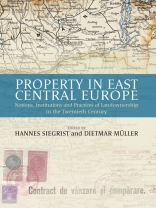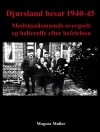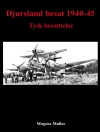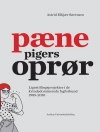Property is a complex phenomenon comprising cultural, social, and legal rules. During the twentieth century, property rights in land suffered massive interference in Central and Eastern Europe. The promise of universal and formally equal rights of land ownership, ensuring predictability of social processes and individual autonomy, was largely not fulfilled. The national appropriation of property in the interwar period and the communist era represent an onerous legacy for the postcommunist (re)construction of a liberal-individualist property regime. However, as the scholars in this collection show, after the demise of communism in Eastern Europe property is again a major factor in shaping individual identity and in providing the political order and culture with a foundational institution. This volume analyzes both historical and contemporary forms of land ownership in Poland, Romania, and Yugoslavia in a multidisciplinary framework including economic history, legal and political studies, and social anthropology.
İçerik tablosu
List of Tables
Acknowledgements
Introduction: Property in East Central Europe: Notions, Institutions and Practices of Landownership in the Twentieth Century
Hannes Siegrist and Dietmar Müller
PART I: ECONOMIC HISTORY
Chapter 1. The Changing Landscape of Property: Landownership and Modernization in Poland in the Nineteenth and Twentieth Centuries
Jacek Kochanowicz
Chapter 2. Agriculture and Landownership in the Economic History of Twentieth-century Romania
Bogdan Murgescu
PART II: PROPERTY BETWEEN LAW AND POLITICS
Chapter 3. Property in the East Central European Legal Culture
Herbert Küpper
Chapter 4. The Habsburg Cadastral Registration System in the Context of Modernization
Kurt Scharr
Chapter 5. Property between Delimitation and Nationalization: The Notion, Institutions and Practices of Land Proprietorship in Romania, Yugoslavia and Poland, 1918–1948
Dietmar Müller
Chapter 6. Frontline Soldiers into Farmers: Military Colonization in Poland after World War I and World War II
Christhardt Henschel
Chapter 7. The Country Road to Revolution: Transforming Individual Peasant Property into Socialist Property in Yugoslavia, 1945–1953
Jovica Luković
PART III: PRACTICES AND MENTALITIES OF LANDOWNERSHIP
Chapter 8. Homeland as Property: Symbolic Ownership and the Local Heritage of the Past in Lemkowyna and the Ukraine
Jacek Nowak
Chapter 9. Landownership in Practice: The Case of the Local Community of Naramice in Central Poland
Paweł Klint
Chapter 10. Property and Agricultural Policy in Twentieth-century Romania: Intentions, Technical Means and Social Realities
Cornel Micu
Chapter 11. Owning Land in Central Serbia: Contemporary Notions and Practices: The Case of Mrčajevci
Srđan Milošević
Chapter 12. The Practices of Land Ownership in Vojvodina: The Case of Aradac
Jovana Diković
Selected Bibliography
Notes on Contributors
Index
Yazar hakkında
Hannes Siegrist is Professor for social and cultural history of modern and contemporary Europe at the University of Leipzig. He is the co-editor of Comparativ. Zeitschrift für Globalgeschichte und Vergleichende Gesellschaftsforschung and the book-series “Moderne europäische Geschichte” with Wallstein Verlag, Göttingen. His publications include Intellectual Property Rights and Globalization (special issue of Comparativ, 2011), Eigentum im internationalen Vergleich: 18.-20. Jahrhundert (with David Sugarman, Vandenhoeck & Ruprecht 1999).












